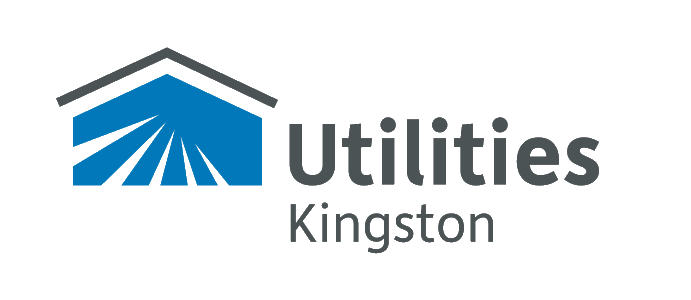2019 Achievements
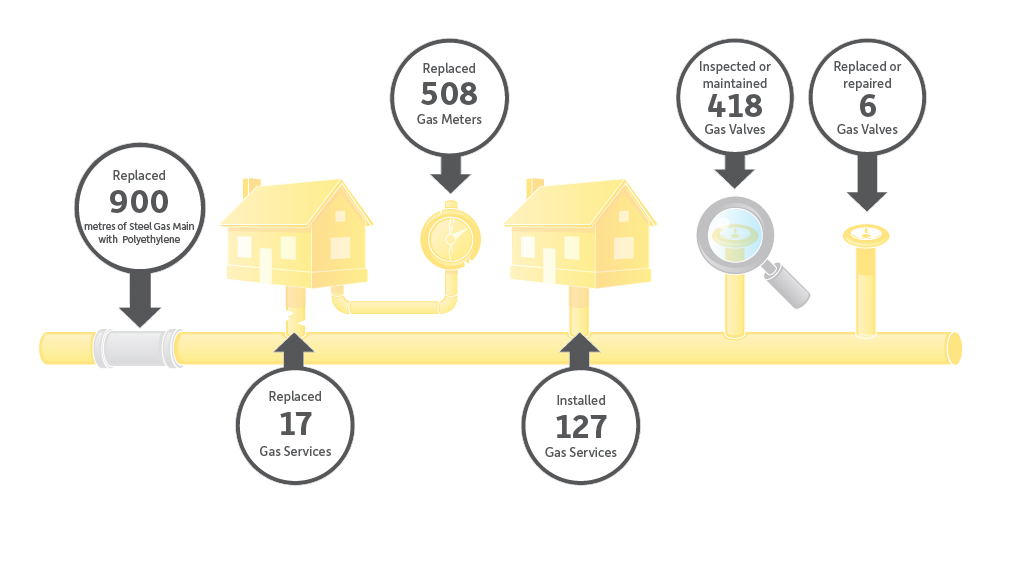 Click to enlarge
Click to enlarge
What's the context?
We've provided data on our achievements in 2019. If you're looking for additional context on how much overall infrastructure we maintain, check out our overview infographics.
508 gas meters replaced is out of 15,000 gas meters in the municipal gas distribution system, which have reached their end of life, as determined by Measurement Canada.
Internal Resources for New Gas Service Installs
During 2019, Utilities Kingston installed most new gas services using in-house resources. Our crews worked diligently to provide timely installations.
Over the past two years, installation crew has ensured excellent quality of work, allowing our team to continually assess the condition of our underground assets, as we expose and work on underground pipes throughout the city. This activity ensures our staff members are exposed to all aspects of gas construction work.
Gas Valve Maintenance Program
Utilities Kingston maintains over 1,400 mainline gas valves. The gas valve maintenance program helps to ensure the integrity of the municipal gas distribution system.
In 2019, we inspected or maintained 336 valves, focusing on high pressure and steel gas mains, and priority valves for schools, hospitals and construction sites.
More Efficient Natural Gas Line Heaters for the Municipal System
Utilities Kingston completed the replacement of the natural gas line heaters at two regulating stations with more efficient Cold Weather Technologies Natural Gas Line Heaters. It is anticipated that this upgrade will reduce energy consumption to heat natural gas by 50 per cent. This is expected to conserve over 300,000 cubic metres of natural gas annually and reduce carbon emissions by 600 tonnes, equivalent to 130 cars removed.
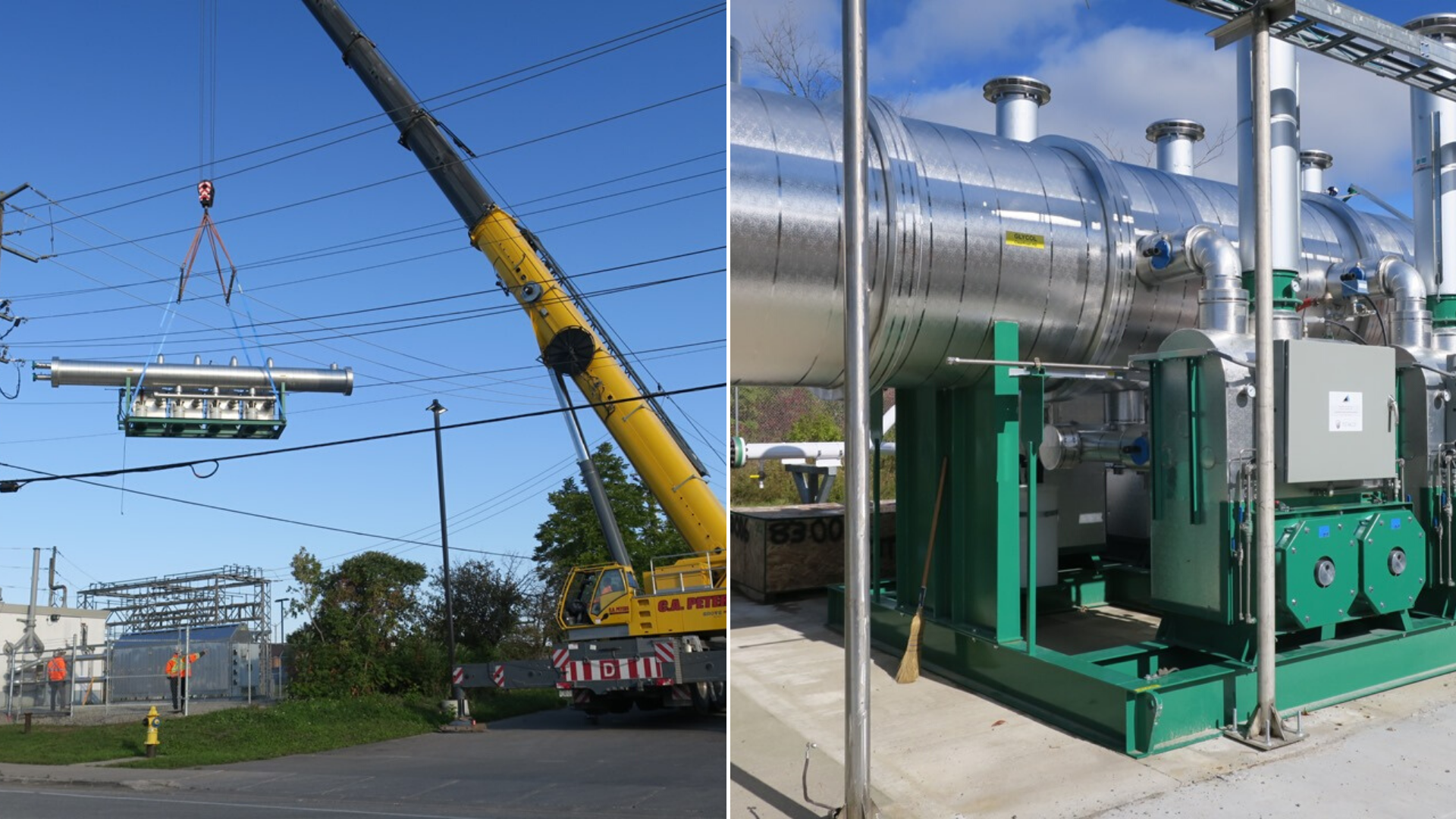
Training
Competency Assessment Program
Staff training and competency continued to be a key focus. We identified training and assessment requirements under the Competency Assessment Program. All new employees involved in gas operations took part in the Technical Standards & Safety Authority (TSSA) Gas Pipeline Inspectors Certification.
Gas Regulator Training
In 2019, there continued to be a focus on training associated with our regulating stations. This included heater training, training on the mercaptan system and regulator-specific training.
Ensuring Gas Safety
As part of maintaining the integrity of the natural gas system, on an annual basis we inspect over 20 per cent of the infrastructure for leaks.
Overall, we maintain 261 kilometres of gas main and the other assets described in our natural gas overview infographic. Here's what we inspected in 2019:
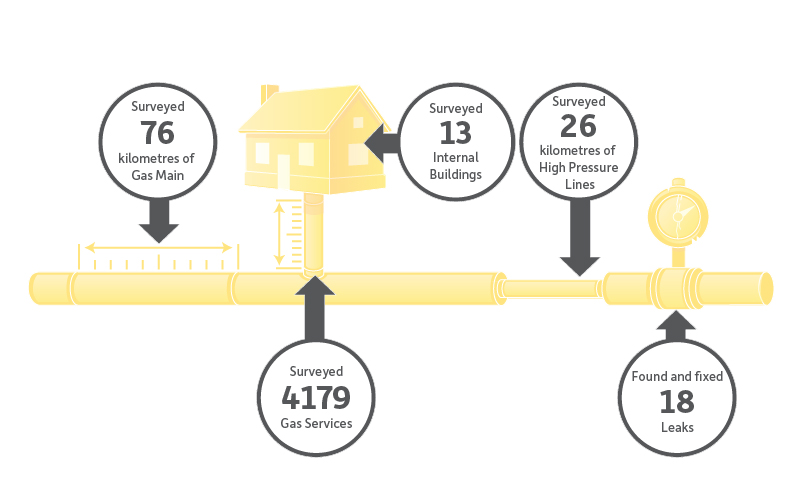 Click to enlarge
Click to enlarge
Regulation and Legislation
Reporting System Damage
Ontario Regulation 210/01, Oil And Gas Pipeline Systems, requires that Utilities Kingston reports when there has been damage to the system that results in a gas leak. In 2019, there were a total of 18 occurrences, compared to 9 in 2017 and 11 in 2018.
Audit of Customer Appliances
As part of a TSSA audit, mandated under the Electricity and Gas Inspection Act, we conducted 906 inspections of customer-owned appliances, piping and fittings, and identified 403 hazards. Property owners were advised on what to do next, helping to improve occupant safety.

Cathodic Protection
Effective cathodic protection extends the life of steel pipelines for improved safety and asset management. Approximately 25 per cent of the municipal gas distribution is composed of steel. In 2019, we replaced a number of cathodic test stations, revamped our specifications for equipment and developed a plan for additional anode installations.
Legal Requirements of Gas Meters
As determined by Measurement Canada, and in accordance with the Electricity and Gas Inspection Act, every year we send a sample number of gas meters to verify accuracy and that the meters conform to legal requirements. In 2019, we replaced 508 gas meters for this purpose.
Gas meters must be verified and reverified within appropriate periods, established on the basis of their stability of performance, application and usage. Measurement Canada determines how meters are selected for verification. This is based on criteria that include age, size and manufacturer. Meters are typically verified and reverified every 7 to 10 years.
Distribution System Integrity Management Program
The Distribution System Integrity Management Program (DSIMP) is a requirement under CSA Z662- 15 Oil and Gas Pipeline Systems.
In 2019, we conducted a detailed audit of the DSIMP and made a number of changes to our documentation. Utilities Kingston has focused a significant amount of attention on improving data collection in the field, to better assess asset conditions. Utilities Kingston was notified of a distribution audit by the TSSA in 2019. Initial documentation was sent to the TSSA in late 2019 and it is expected the audit will continue in 2020.
